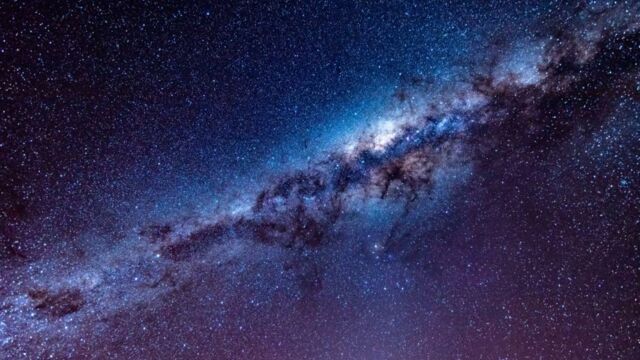If you've never asked yourself this question, raise your hand! But when you consider that the Sun alone represents 99.86% of the mass of the Solar System, and that it heats up to several thousand degrees, such a question seems legitimate.
Discover our latest podcast
Hot vs. cold
Sometimes, we get so caught up in certain issues, such as whether there's life outside Earth, that we forget about the basics. That's why it makes sense to want to understand why it's so cold in space when the Sun, which produces its own energy, heats up to thousands or even millions of degrees. And to be perfectly accurate, the average temperature in our Solar System is around -150°C.
As a reminder, the coldest point so far measured in the Universe is of the order of -272°C, very close to absolute zero. As for our star's temperature, it's not homogeneous. Its center reaches 15 million degrees (no less!), while the photosphere, i.e. its surface, is 'weaker', at around 5500°C. At the same time, the solar corona registers 3.5 million degrees. But given these staggering figures, why isn't it at least a little warmer in space?
The paradox in question
To explain temperature variations in our Solar System, we need to understand how the Sun heats up. Contrary to popular belief, the Sun doesn't heat up like a fireplace. And planets are not like our hands, whose temperature rises the closer we get to the heat source. High temperatures are in fact the result of radiation emitted by the Sun, which interacts with particles in our atmosphere.
In the vast Universe, particles are virtually non-existent beyond celestial bodies, which explains the low temperatures that can be encountered. As a result, our Solar System is neither very hot nor very cold - it's both. Temperature variations can range very rapidly from 150°C to -120°C. This explains why astronauts wear spacesuits. As well as providing them with precious oxygen, or offering a significant pressure on the body, they protect against these extreme variations.
Blinded by the light 😎#sun#space#outerspace#solar#solarflare#flare#nasa#planet#star#universe#stars#bright#light#burst#explode#explosion#crazy#cool#science#fyp#weather#nature#clime#climeapppic.twitter.com/jbMXKLA61t
— Clime (@ClimeRadar) December 15, 2023
Read more:
⋙ This is how you would die on each planet in the solar system
⋙ Discover these amazing facts about our Solar System, they will blow your mind
⋙ Here's what would happen if a planet went rogue in our solar system
⋙ NASA reveals it may have found a 9th planet in our solar system and it looks massive
⋙ A nearby solar system which was destroyed has been discovered
This article has been translated from Gentside FR.















